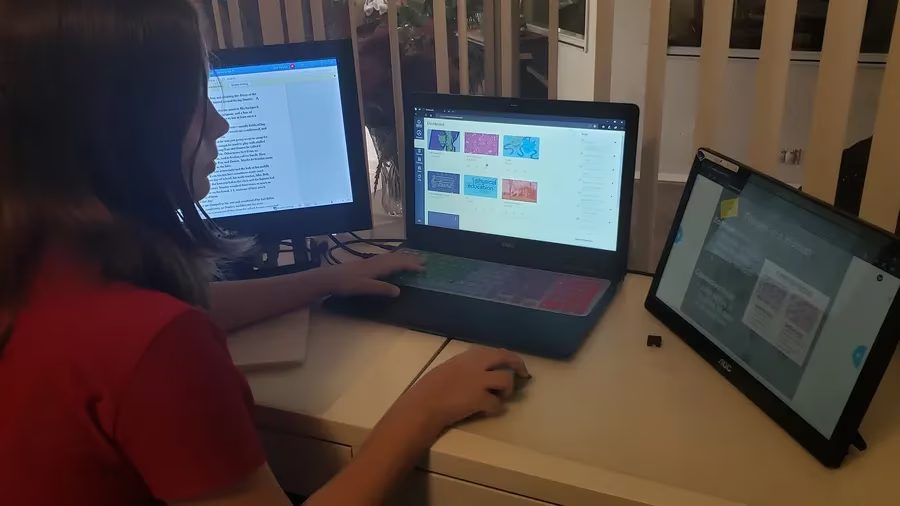
Florida may drop law requiring that students take an online course to graduate
Tampa Bay Times | By Jeffrey S. Solochek | March 14, 2023
The law has been in place for years, but now is seen as a possible barrier to a high school diploma.
When Haley Bruce learned she needed to take an online course to earn a Florida high school diploma, she had one thought.
The Hollins High senior looked for “classes that were the easiest … to get the requirement.” She didn’t particularly care for virtual learning over in-person instruction, and she preferred to focus on classes in the school’s Academy of Entertainment Arts.
To fulfill the mandate, she chose a required class that focuses on health and fitness, but it “didn’t really prepare me for anything,” she said. “It was mainly just so I could graduate.”
With many students reporting similar issues, state lawmakers are rethinking the value of the requirement —keenly aware that online learning did not serve all students well during the pandemic.

Both the House and Senate have proposed eliminating the provision, which went into effect with ninth graders entering high school in 2011. The change iscontained in bills aimed at expanding tax-funded school vouchers to all K-12 students in Florida. (HB 1 / SB 202).
The state’s superintendents association requested the change as one way to reduce the number of requirements Florida puts on public schools but not private schools. Officials will take an in-depth look at that issue this summer, Katie Betta, spokesperson for Senate President Kathleen Passidomo, said via email.
“The president’s goal is to level the playing field, so that public schools have a meaningful opportunity to compete with private schools,” Betta said.
Bay County superintendent Bill Husfelt, the association’s president, said concerns about the online requirement emerged well before COVID-19 sent children home to learn remotely.
“The problem is not all kids have access to it,” Husfelt said. “The northern part of our county doesn’t even have internet access.”
Offering the online course during the day can interrupt the regular flow of school.
“We just don’t want it to be a hindrance for getting a diploma because they can’t do it or aren’t interested in doing it,” Husfelt said. “Not all kids thrive on that. … It’s not a panacea.”
The pandemic highlighted the problems, which have simmered for years, he said.
Lawmakers established the requirement a little more than a decade ago, when online courses were not the norm. They touted the idea as a way to prepare students for the world of college and work, developing skills such as time management and task prioritization.
They also viewed the idea as one way to help ease crowding in schools without having to build more classrooms. And it provided more course choices for students.
Pasco eSchool founding principal JoAnne Glenn, who was named 2020 Digital Principal of the Year by the National Association of Secondary School Principals, said the requirement offered plenty of benefits while not appearing to hurt students.
“We didn’t have many seniors who got close to graduation and said they forgot to do it,” Glenn said.
She noted that several used the rule as Bruce did, to meet their physical education credit requirement. Others completed credit recovery and elective courses. After a few years, the state made it easier to meet the mandate by broadening the rule to allow courses that blend online and in-person components.
These days, most students average about 2.5 credits of online courses, Glenn said.
The biggest struggle came for students learning English as a second language, she said. “It is challenging to learn in a new language anyway. To learn in an environment like on online course was another barrier.”
She was ambivalent about whether the state should cancel the graduation requirement but said it wouldn’t change students’ ability to choose online courses.
That was a point the superintendents made, association president Husfelt said.
“Everyone has accepted that is a way you can learn. Now they understand they can do it, so it isn’t as big a deal,” he said.
Bruce, the Hollins High senior, agreed. Virtual courses are abundant, she said, with plenty of variety that some schools can’t offer.
“You can take those courses any time you want,” she said. “It doesn’t have to be a requirement.”





